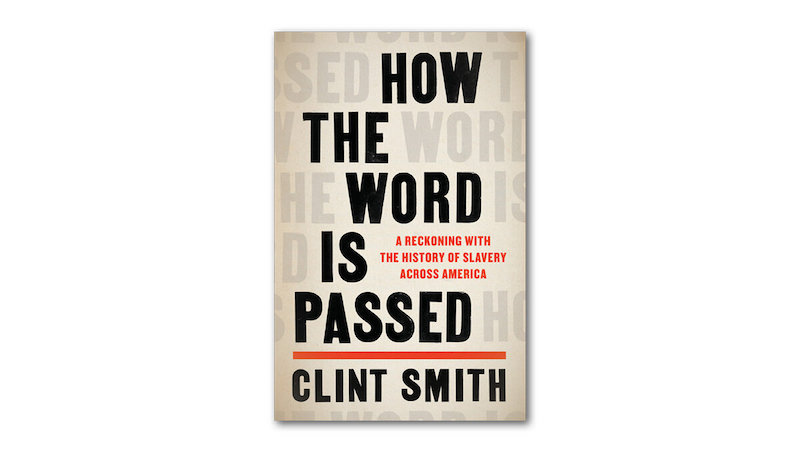
In How the Word is Passed, Clint Smith embarks on a journey through America’s landscapes and landmarks, untangling the deep-seated history of slavery that continues to shape our nation. Angola Prison in Louisiana is one of the most compelling of the eight stops on this journey, which exemplifies the lasting legacy of America’s darkest chapter.
Angola Prison, the largest maximum-security prison in the United States, is a vast complex that covers an area the size of Manhattan. What is particularly haunting about this prison is its location—it stands on what was once a plantation. Today, Angola houses thousands of inmates, 70% of whom are Black, with an average sentence of 87 years. This glaring racial disparity, coupled with the fact that non-unanimous juries convicted many prisoners—a practice now deemed unconstitutional—highlights the persistent systemic racism entrenched within the American justice system.
Smith draws a strong parallel between Angola and the atrocities of the Holocaust, stating, “If in Germany today there were a prison built on top of a former concentration camp, and that prison disproportionately incarcerated Jewish people, it would rightly provoke outrage through the world.” This comparison forces readers to face the moral dissonance in America’s acceptance of such an institution. The fact that Angola exists—and even celebrates its existence with gift shop items like coffee mugs labeling it a “gated community”—is a testament to the normalization of racial injustice in the U.S.
Smith’s journey through America’s past is not merely a retelling of history but a study of the blurred lines between history, memory, and nostalgia. On his first stop at Monticello, the tour guide, David, says, “I’ve come to realize that there’s a difference between history and nostalgia, and somewhere between those two is memory. I think that history is the story of the past, using all the available facts and that nostalgia is a fantasy about the past using no facts, and somewhere in between is memory.” This reflection speaks to the selective memory that shapes America’s understanding of its past, where uncomfortable truths are often glossed over in favor of a more sanitized history.
Smith vividly depicts the various characters he meets along his journey that bring these histories to life. One woman he describes “moved with a dexterity that belied her eight decades, her curly white hair coiled around her head and her eyes as calm as dusk.” Another woman, with “shoulder-length hair composed of tight black curls with a faint trace of red highlights dressing their corkscrew tips,” uses humor to navigate and share the nation’s darkest moments. These figures represent the strength and wisdom of those who continue to witness history, refusing to let it fade into nostalgia.
As Smith travels across cities filled with the echoes of the past, the soundscape is as alive as the stories he uncovers. “Sound emanated from every direction: the staccato jackhammers cracking blocks of concrete in their search for softer earth; cranes stretching their steel joints to lift rubble from one corner of the street to another; ambulances mazing their way through cars and crosswalks, their red flares howling a loud and urgent incantation.” These noises serve as a reminder that history is not stationary but ever-present, echoing through the streets and lives of those who occupy them.
An especially poignant moment in the book captures why telling these stories is crucial. Smith quotes an elder reflecting on the Civil Rights Movement: “I think my generation,” she said, “many getting killed, and beaten, and spit on, and dogs, and hoses, did not understand that you have to keep telling the story in order for people to understand. Each generation has to know the story of how we got where we are today because if you don’t understand, then you are in the position to go back to it.” This belief stresses the importance of preserving and sharing these histories to prevent the repetition of past atrocities.
Throughout How the Word is Passed, Smith highlights the importance of confronting the truth, even when it is uncomfortable. “Some people don’t know, and some people don’t want to know,” he said in a recent interview. “This is a book for those who don’t know the history of slavery in America and its continued profound impact on all aspects of our society, and it’s likely that those who think they know actually don’t.” Smith’s work is a call to those willing to listen, learn, and engage with this country’s genuine history.
In a nation where the scars of slavery run deep, Angola Prison stands as a stark reminder of how far we still have to go. Clint Smith’s How the Word is Passed challenges readers to face these scars, move beyond nostalgia, and grapple with the weight of memory. Through this confrontation, there is hope for a future where justice is an ideal and a lived reality for all.
An OLLI member since 2017, Simone Adair is also a Rosie the Riveter docent, a voracious reader with books in every room and on every device, a longtime Board Member of a running club, a photographer, an editor, and even a LEGO builder in her nearly non-existent free time.
The OLLI Blog showcases the voices and perspectives of the OLLI community as well as news from and about OLLI.